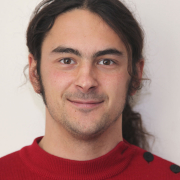
Copyright : Laboratoire LEMAR- 2018
Jonathan Flye-Sainte-Marie (LEMAR) et Arturo Aguirre-Velarde (IMARPE)
International
JEAI IRD
Start Date
30/03/2025
End Date
30/03/2025
Coastal areas are transition zones between land and sea where human activity is particularly important. In Peru the coastal zones are characterized by the presence of a coastal upwelling zones that support an intense primary and secondary production. These zones are also characterized by a strong activity of degradation of organic matter inducing a pronounced zone of minimum oxygen, low pH and concentrations of toxic hydrogen sulfide that can be important. This ecosystem is also periodically disturbed by El Niño, which drastically modify the stratification, the functioning of the upwelling and the production.
This project focuses on the ecology of Peruvian coastal bays where intense fishing and aquaculture activities takes place. These bays have suffered major ecological crisis (massive mortality) in the last ten years, thus strongly impacting the activities and the associated jobs. The work that has been done since 2011 by LEMAR has allowed us to highlight the extremely high variability of environmental conditions in these bays, which constitute stress factors for the organisms that live there. We have also been able to show that the conditions in the bays are at least partially dependent on the dynamics at a larger scale (influence of the ENSO oscillation, but also of phenomena of a smaller spatio-temporal scale). From this work emerged the need for a multi-disciplinary approach to better understand the dynamics and impact of environmental stressors on the life traits of coastal living resources.
The JEAI DYSRUP aims to bring together a multidisciplinary team of physical oceanographers, biogeochemists, ecologists, ecophysiologists and molecular biologists in order to form a critical mass of young Peruvian researchers able to producing the scientific knowledge necessary for a sustainable management of coastal ecosystems. The JEAI is based on training to and through research aimed at (1) characterizing the interactions between the internal dynamics of bays and medium and large scale external forcings, involving both physical oceanography and biogeochemistry (2) characterize the variability of terrigenous inputs and their sediment storage/remobilization and their impacts on bay dynamics (3) understand and model the impact of environmental stressors on the life traits of organisms through ecophysiological, energetic and molecular approaches. The results obtained will allow us to propose operating strategies to bay users (e.g. cultivation planning) in order to limit the risks associated with environmental stresses, thus contributing to the sustainable development of their activities, in particular aquaculture.
LOCEAN : François Colas
GET : David Point
IMARPE : Arturo Aguirre-Velarde, Dimitri Gutierrez, Dante Espinoza, Giovanna Sotil, Cecil Tenorio, Cinthia Arrellano, Michelle Graco, Sonia Sanchez, Dimitri Gutierrez
UPCH : Jorge Cardich, Lander Merma
UCAD : Jorge Flores

 CORRIENTE XXI
Scroll to top
CORRIENTE XXI
Scroll to top